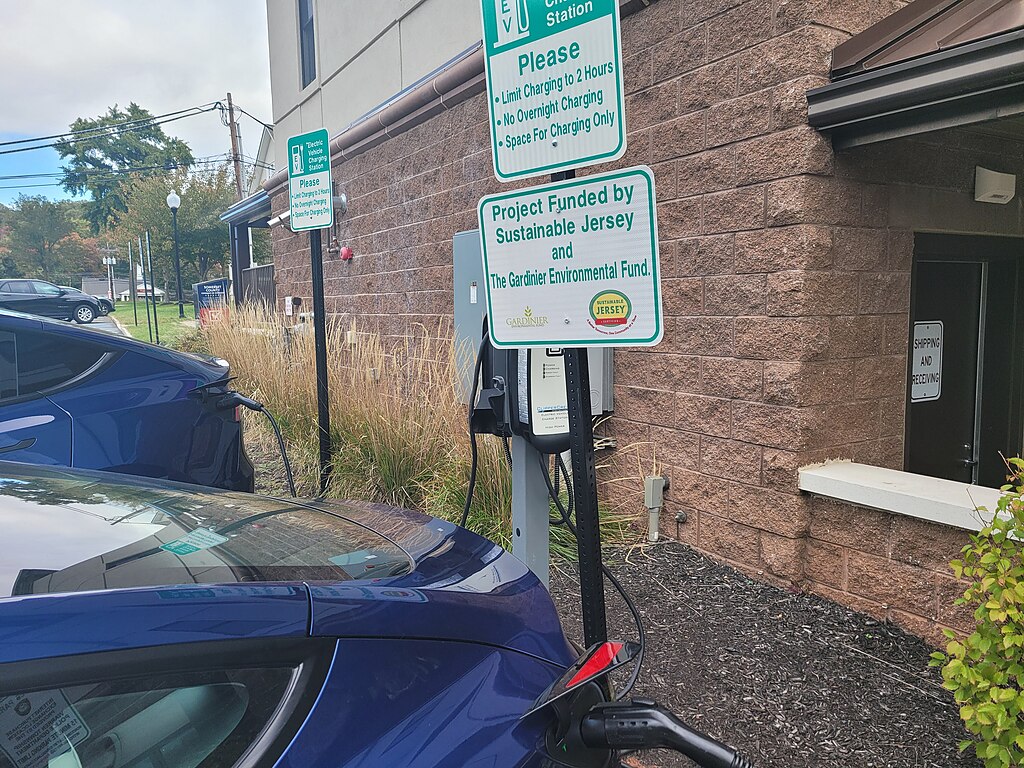EV Drivers in 36 States Pay a Surplus of Fees Each Year
Electric vehicle (EV) drivers are increasingly subject to various fees and taxes, many of which aim to replicate the motor fuel taxes paid by gasoline-powered vehicle drivers. These include higher registration fees, taxes on the electricity used at public charging stations, and sales taxes. This combination of taxes can create an inequitable situation for EV drivers compared to those using gasoline vehicles.
According to author Moe Khatib in an article for Atlas Public Policy, 45 states impose at least one tax or fee on EV drivers, 28 states impose at least two, and three states have three or more. Their analysis, which calculates the “EV Penalty”—the total amount of EV-specific taxes and fees a driver pays annually, especially when using public Direct Current Fast Chargers (DCFCs)—reveals that in 36 states, including Washington, D.C., EV drivers pay more in taxes than drivers of gasoline vehicles. In 16 of those states, the “EV Penalty” exceeds $150 annually.
This issue is compounded by the lack of transparency regarding taxes at public EV charging stations and outdated tax policies that have not kept pace with the growing adoption of electric vehicles. Consequently, many EV drivers face an unfair tax burden compared to gasoline vehicle owners, which could discourage EV adoption at a time when governments are pushing for cleaner transportation solutions.
New Jersey EV drivers Hit with New $250 Fee
As of July 1, 2024, New Jersey has implemented an annual electric vehicle (EV) fee for drivers of zero-emission vehicles. In addition to the standard vehicle registration fee, EV owners are now required to pay an annual fee of $250. This fee will increase by $10 each year for the next four years after the initial payment.
The fee applies to any vehicle classified as a zero-emission vehicle (ZEV) according to the California Air Resources Board (CARB) ZEV standards for the applicable model year. The goal of this legislation is to ensure that EV drivers contribute to road maintenance costs, which are typically funded through gasoline taxes, and reflects a growing trend among states implementing fees for EVs.

On March 26, 2024, New Jersey Governor Phil Murphy signed into law a bill that introduced an annual fee for electric vehicle (EV) drivers and renewed the state’s Transportation Trust Fund (TTF). The legislation also included an annual two-cent increase in the state gas tax. The revenue generated from both the EV fees and the increased gas tax will help fund New Jersey’s road projects and NJ Transit’s capital needs.
Since EV drivers do not pay the gas tax, which traditionally serves as a “user fee” for road usage, the new annual EV fee ensures they also contribute to the upkeep of state roads and bridges. The funds collected will support road repairs, expansions, and infrastructure improvement projects across the state. This legislative move addresses concerns about the fair distribution of costs for maintaining transportation infrastructure as EV adoption grows.
EVinfo.net’s Opinion on Higher Taxes for EV Drivers
Higher taxes for EV drivers are yet another barrier to EV adoption, which is the last thing America needs right now. EVs fight climate change by offering zero emissions. The federal government has addressed the issue of transportation-based pollution by supporting the EV industry.
The historic Inflation Reduction Act and Bipartisan Infrastructure Law, passed by the Biden-Harris Administration, are part of the most significant effort ever undertaken to combat climate change, both in the United States and globally. The laws have created an astounding amount of economic growth and new jobs in America. However, the US must go farther and promote EV adoption even more.
EVinfo.net calls on state governments to adjust their gas tax initiatives to make the tax burden more fair for EV owners. States have the opportunity to support EV adoption by lowering these taxes, or phasing them in more slowly. EVinfo.net recognizes the need for taxes from vehicle owners and drivers to pay for road repairs and other transportation-based initiatives. We believe EV owners should pay their fair share. However, the current tax system statewide is not fair. We urge state governments to find better solutions to this issue.

Electric Vehicle Marketing Consultant, Writer and Editor. Publisher EVinfo.net.
Services